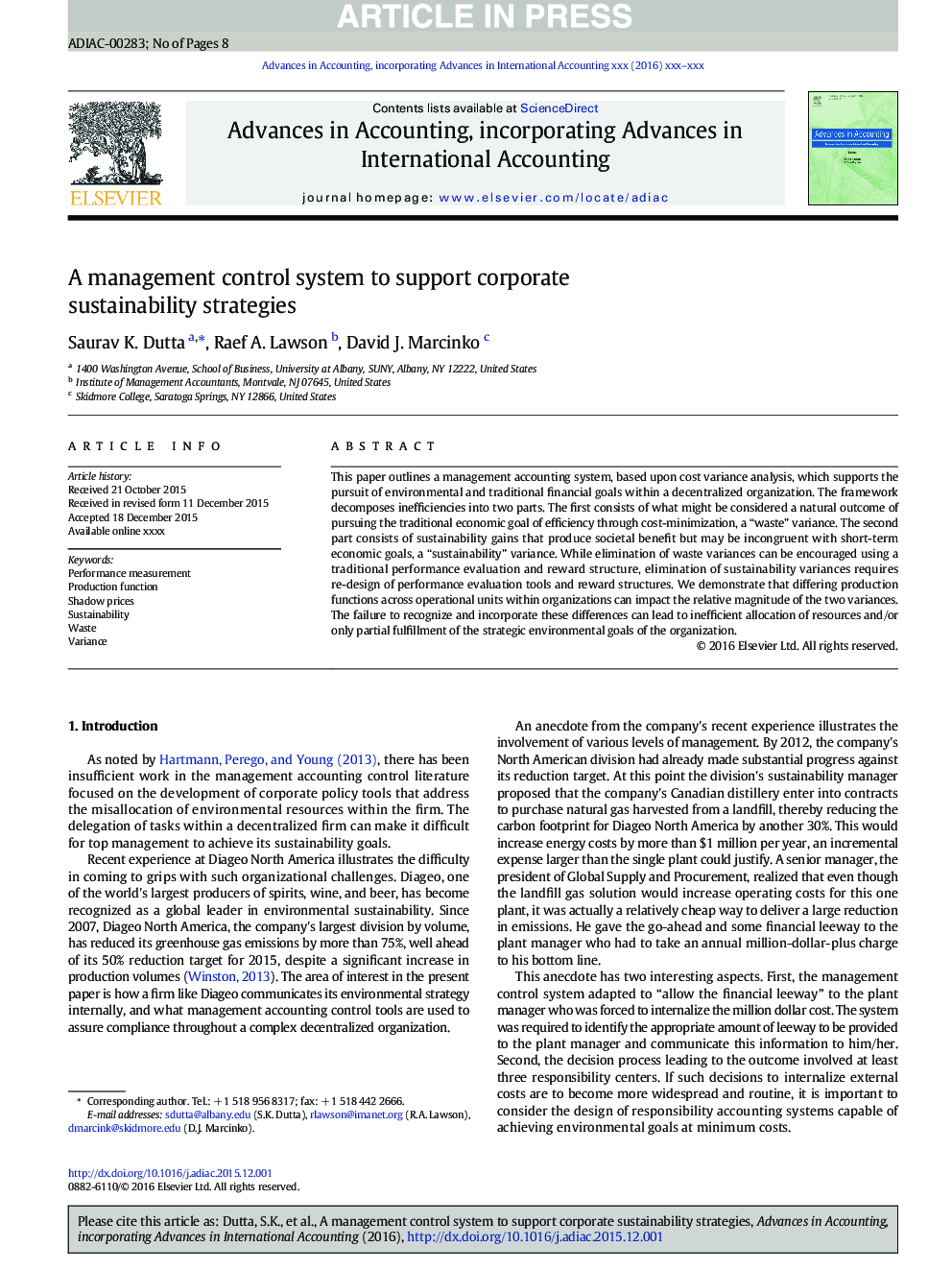| Article ID | Journal | Published Year | Pages | File Type |
|---|---|---|---|---|
| 7340104 | Advances in Accounting | 2016 | 8 Pages |
Abstract
This paper outlines a management accounting system, based upon cost variance analysis, which supports the pursuit of environmental and traditional financial goals within a decentralized organization. The framework decomposes inefficiencies into two parts. The first consists of what might be considered a natural outcome of pursuing the traditional economic goal of efficiency through cost-minimization, a “waste” variance. The second part consists of sustainability gains that produce societal benefit but may be incongruent with short-term economic goals, a “sustainability” variance. While elimination of waste variances can be encouraged using a traditional performance evaluation and reward structure, elimination of sustainability variances requires re-design of performance evaluation tools and reward structures. We demonstrate that differing production functions across operational units within organizations can impact the relative magnitude of the two variances. The failure to recognize and incorporate these differences can lead to inefficient allocation of resources and/or only partial fulfillment of the strategic environmental goals of the organization.
Related Topics
Social Sciences and Humanities
Business, Management and Accounting
Accounting
Authors
Saurav K. Dutta, Raef A. Lawson, David J. Marcinko,
